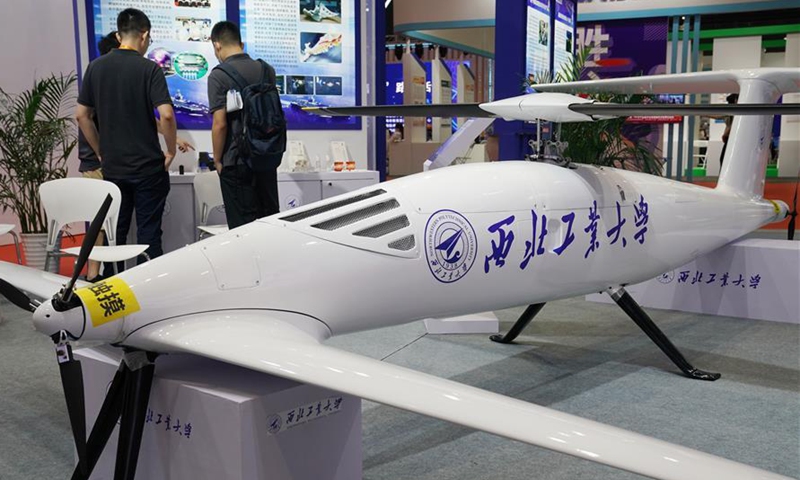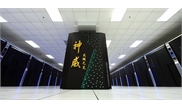Ministry of Education draws talent cultivation plan to break foreign tech ‘strangleholds’

A vertical take-off and landing drone is displayed by Northwestern Polytechnical University at the China International Industry Fair in Shanghai, east China, Sept. 15, 2020. The five-day China International Industry Fair opened at the National Exhibition and Convention Center (Shanghai) on Tuesday, which attracted over 2,000 enterprises from 22 countries and regions. (Xinhua/Liu Ying)
In the face of certain countries' technology crackdowns on China, the Ministry of Education (MOE) has rolled out a talent cultivation campaign, which focuses on key technologies as well as plans to nurture urgently needed talent in "unusual ways," in order to solve the country's pressing technological problems and push forward innovation.
The campaign was launched during a conference held by the MOE on Tuesday, at which a document on a revolution in postgraduate education was released. The MOE said it will mobilize top-notch universities, institutions and teachers to achieve this goal.
The decision is a response to recent reckless technological crackdowns led by the US. Nurturing urgently needed talent is key to help China escape a technology "stranglehold," Xiong Bingqi, deputy director of the Shanghai-based 21st Century Education Research Institute, told the Global Times.
Xiong said "unusual ways" of cultivating this talent may refer to establishing unique channels of promotion and growth for such people, such as reducing the number of research papers they have to publish. Papers are crucial for Chinese scientists to get promotions. "Those key technologies are already mature, so there's limited scope for publishing academic papers on those issues. Such people can devote more time to experiments and research," said Xiong.
Science and Technology Daily, a newspaper affiliated with the Ministry of Science and Technology, listed 35 "stranglehold" technologies in 2019, which included chips, lithography machines and operating systems.
Apart from the MOE, Chinese authorities have taken many measures to show the government attaches great importance to key technology development.
Vice Premier Liu He recently visited one of the country's most important national defense military and scientific research bases and top engineering physics academies in Mianyang, Southwest China's Sichuan Province.
This was just one move that Chinese top leaders made in the past two weeks to push for innovation and call for breakthroughs in key technologies amid an escalating tech war between China and the US.
Experts said it is obvious that Chinese society, from the top leaders to the grassroots, has reached a consensus to fight against the US' "technology hegemony," as the US is moving to strangle Chinese tech giants, notably Huawei, through its administrative weapons.
Bai Chunli, president of the Chinese Academy of Sciences, also suggested turning technologies mentioned in the US Entity List into China's scientific research targets - for example, development of key raw materials and mask aligners for making chipsets.


